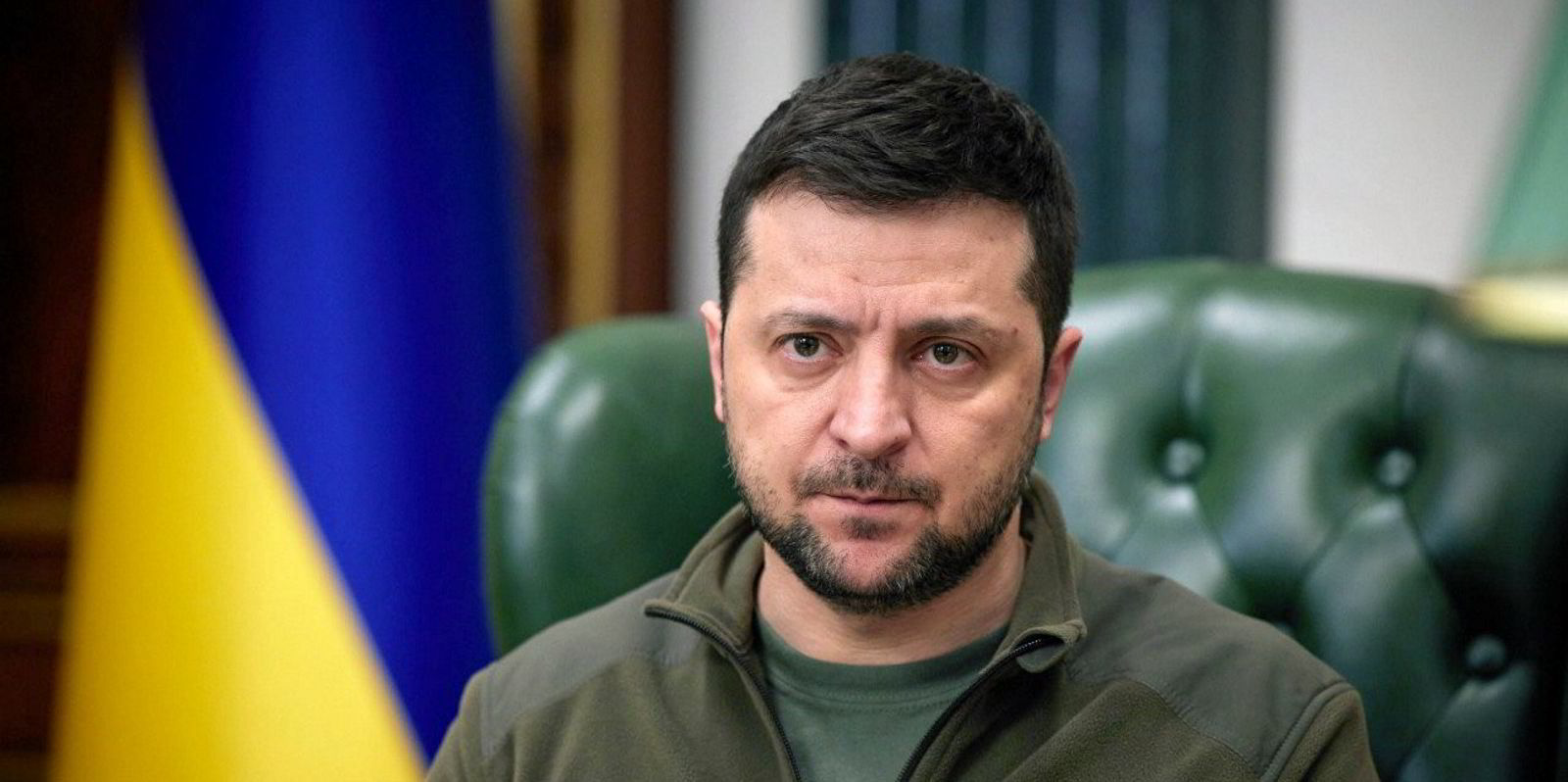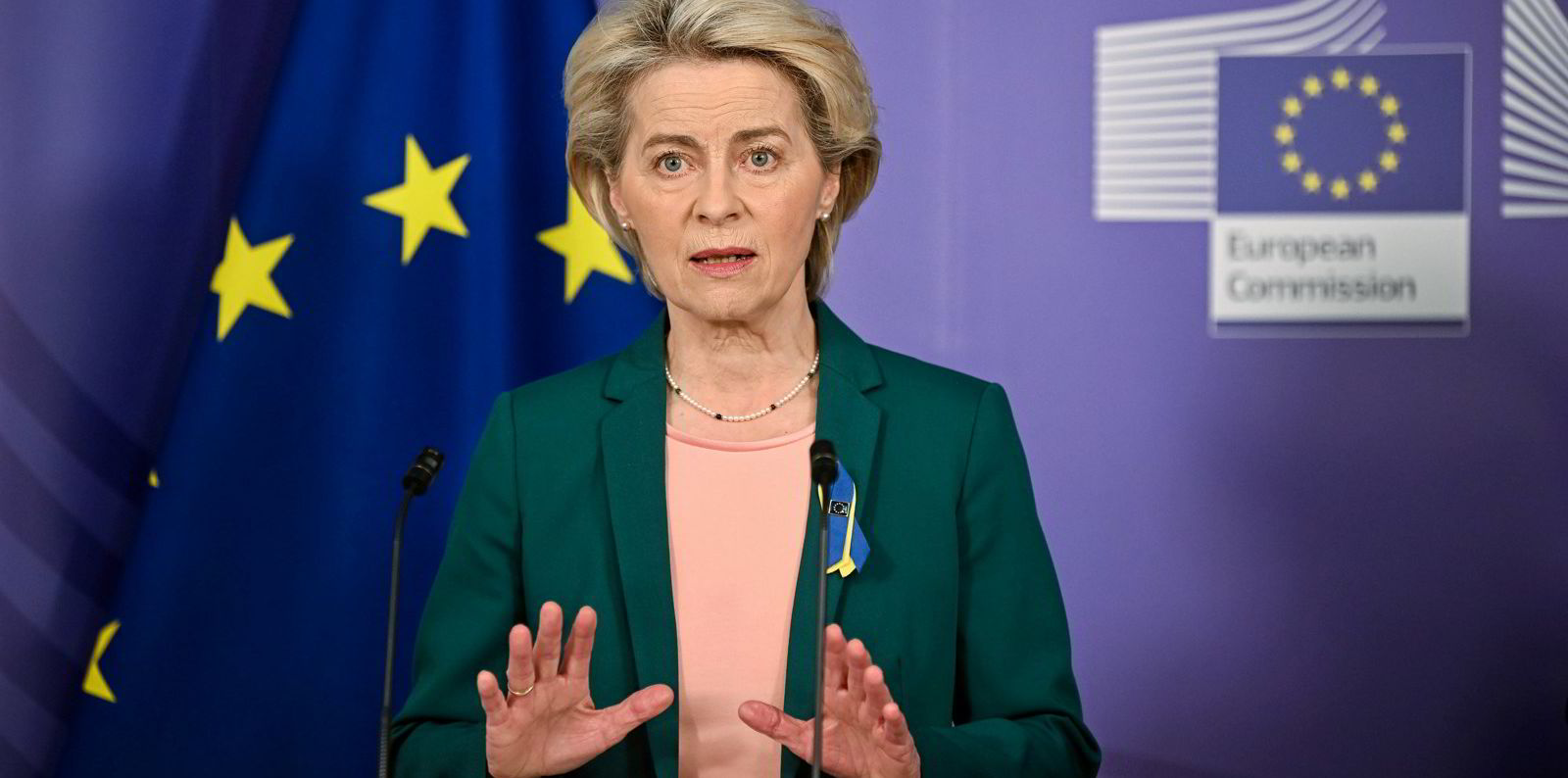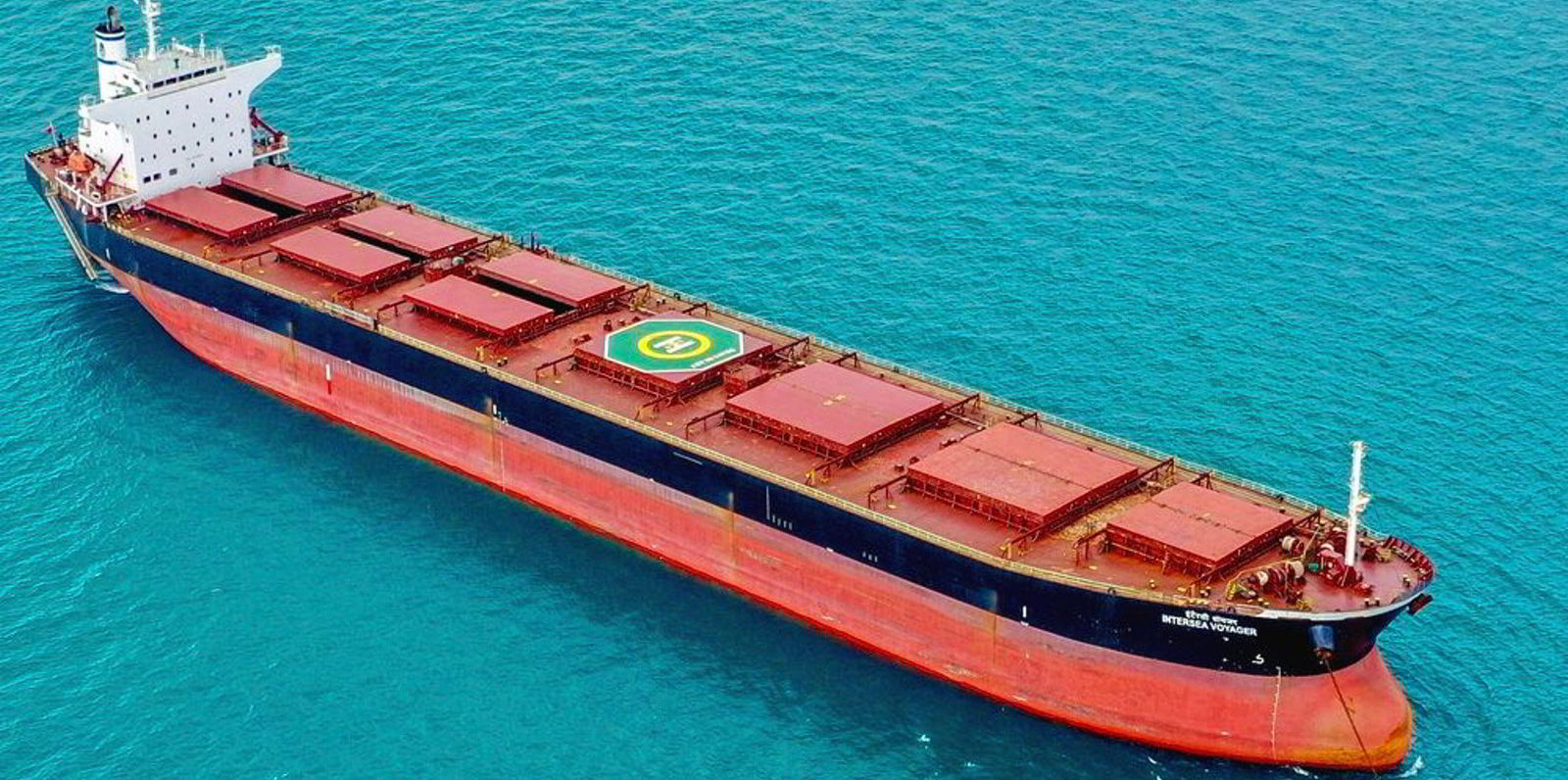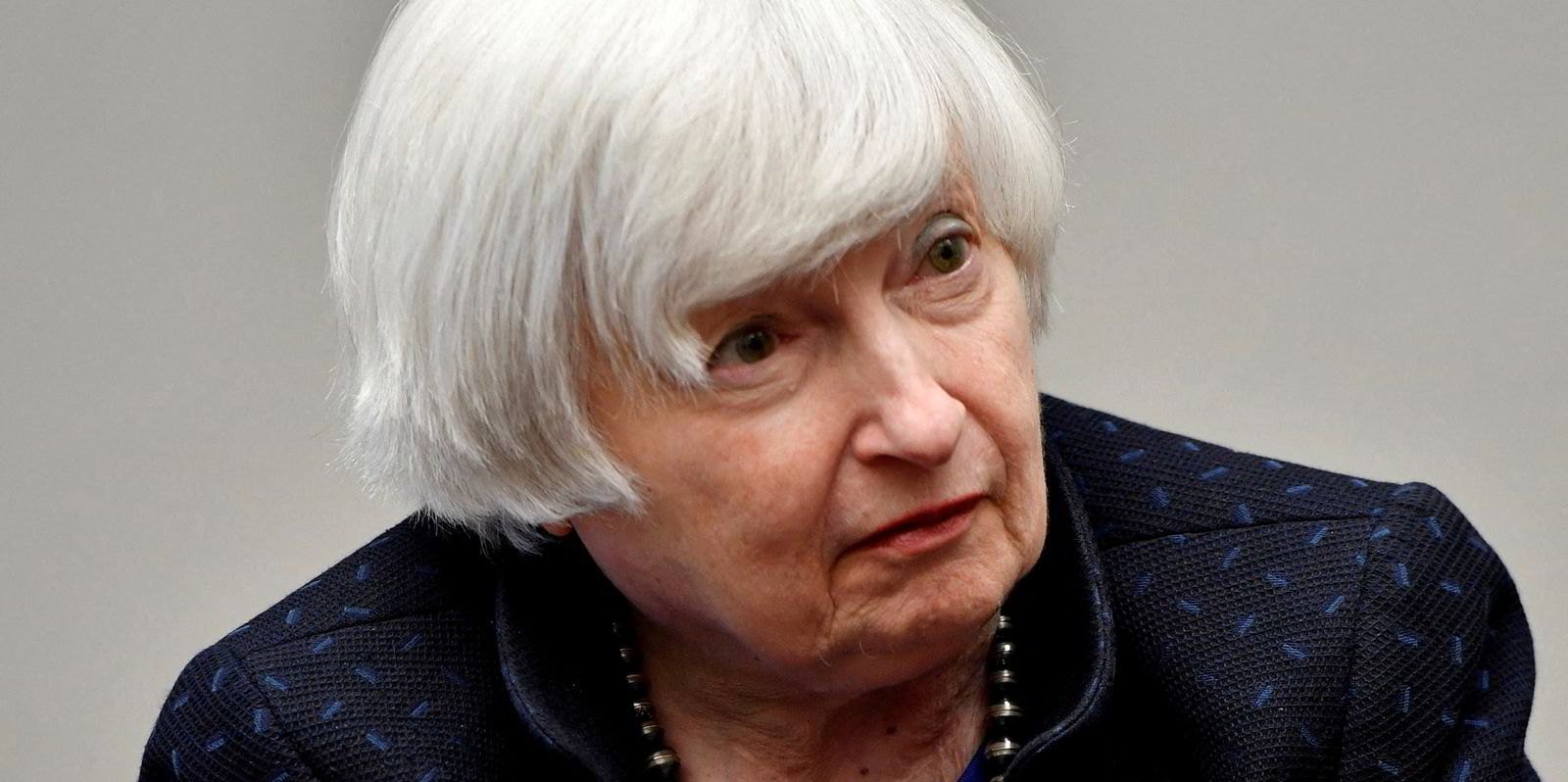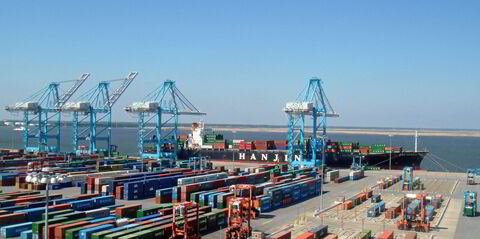Ukrainian President Volodymyr Zelenskyy urged the international community on Thursday to block seaborne Russian exports, singling out oil tankers in particular.
“No Russian ship should have a possibility of entering any port in the democratic world,” Zelenskyy told Greek lawmakers.
“Why should we help them so that they make even more money by and for producing their missiles and bombs to destroy not only Mariupol but also other Ukrainian cities?”, he said in his address broadcast live via teleconference.
Zelenskyy added: “...first of all, we should not give any support to Russian tankers — those oil tankers which provide Russia with a constant flow of money for war”.
His comments were translated from Ukrainian to English.
The Ukrainian president's comments come two days after the European Commission, the European Union's (EU) executive, announced plans to prohibit coal imports from Russia and to bar ships owned or operated out of Russia from accessing EU ports.
This latest set of sanctions, however, is full of holes. The envisaged coal import ban is only to take place from August. The vessel blockage would exempt those carrying, energy, agricultural and food products.
'Let's sanction candles' as well...
Zelenskyy has been pressing the international community to sharpen economic sanctions already taken after Russian president Vladimir Putin ordered his troops to invade Ukraine on 24 February.
The EU, of which Greece is a member, has announced five sets of wide-ranging sanctions since then. However, the 27-nation club is still reluctant to widen them to ban Russian oil and natural gas imports, fearing the recession such a move might cause on the continent.
With the EU highly dependent on Russian natural gas and oil, European companies and governments have continued such imports with a view to gradually reduce them over time.
Fearing legal complications and bad press, several shipowners have nevertheless announced they would voluntarily stop their tankers from lifting Russian cargo.
Others, however, with a greater appetite for risk and less exposure to the public or other kinds of scrutiny, have continued with the business, which is still legal under EU and UK law.
Public pressure to announce an oil embargo increased earlier this month, however, after media reports of atrocities committed against civilians by Russian troops withdrawing from their positions outside the Ukrainian capital, Kyiv.
In a vote on Thursday the European Parliament adopted a resolution calling, among other things, “for an immediate full embargo on Russian imports of oil, coal, nuclear fuel, and on [natural] gas as swiftly as possible”.
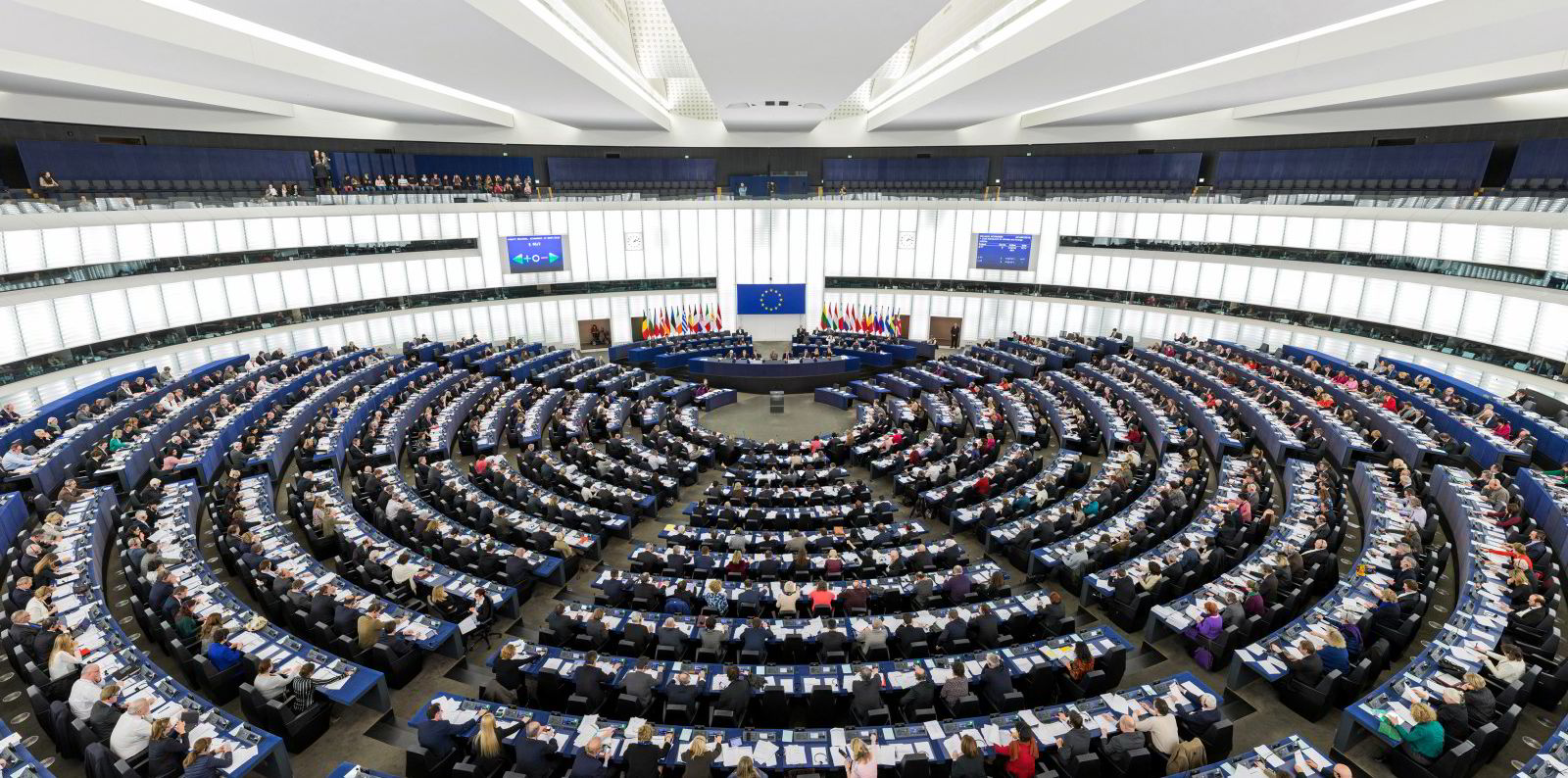
Nordstream 1 and 2, pipelines built to carry Russian natural gas to the West, should be “completely abandoned,” the EU lawmakers added.
Proposals for an oil embargo also seem to be gaining ground amid EU governments, which have the actual power to decide any such move.
An oil embargo against Russia is the next step that the bloc should be taking, said on Wednesday Gabrielius Landsbergis, the foreign minister of EU member Lithuania.
Landsbergis, however, expressed doubts that his EU counterparts could decided such a move on 11 April, when they are due to meet in Luxembourg.
Heaping scorn on the effectiveness of the EU's proposed coal import ban, Landsbergis said: “Let’s sanction candles and firewood”.
((This article was updated since original publication to include the EU Parliament's resolution adopted on Thursday))
